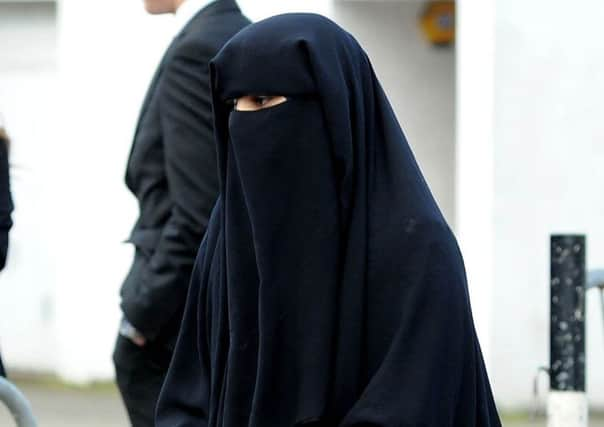One in 3 ethnic Scots is victim of prejudice


Research by Strathclyde University and polling firm Survation also found that nearly 35 per cent of the black and minority ethnic (BME) population believes discrimination is a “widespread problem”.
Dr Nasar Meer, who led the study, asked more than 500 BME respondents across Scotland a range of questions that explored whether racial discrimination was an issue in their lives.
Advertisement
Hide AdAdvertisement
Hide AdThose who reported facing discrimination did not restrict it to a single area, but instead pointed to experiences in employment – either in getting a job (36 per cent) or being promoted (31 per cent) – as well as in education (35 per cent) and in the use of public transport (35 per cent).
More than four-fifths (82 per cent) of those who said they had experienced discrimination felt this was due to their perceived ethnicity, and 42 per cent felt it was due to their perceived religion.
Dr Meer said: “The way we statistically measure experiences of discrimination varies from one survey to another, but this is the first survey that is focused exclusively on BME experiences in Scotland.
“What it shows is that there is clearly a perception of both low-level and more obvious experiences of racial discrimination in Scotland, but also of under-reporting, and much more research is needed to show how and in what ways this may be occurring.”
He added: “We certainly know from other fieldwork that racial discrimination occurs across the UK – for example, that BME applicants are less likely to be successful in applying for a job even discounting differences such as age and education. As this survey shows, we cannot assume this is not an issue in Scotland too.”
Some BME groups reported higher levels of discrimination than others. Nearly 45 per cent of respondents with a Black African Caribbean heritage – compared with 29 per cent of Asian heritage and 23 per cent of mixed heritage – agreed with the statement that they had “experienced discrimination in Scotland in the last five years”.
The research – carried out through a Research Fellowship awarded by the Royal Society of Edinburgh (RSE) – also found 60 per cent of respondents who had experienced discrimination in the last five years did not report it to any kind of authority.
This was despite 82 per cent of the entire sample insisting they would encourage a friend or family to make a formal complaint if they thought they had experienced discrimination.
Advertisement
Hide AdAdvertisement
Hide AdWhen respondents were asked if they felt incidents of racial discrimination were increasing or decreasing, 21 per cent stated they had become “more frequent”, 22 per cent “less frequent”, and 43 per cent that they had “stayed the same” over the last five years.
Over half (54 per cent) and nearly a quarter (24 per cent) agreed and disagreed respectively with the statement “the Scottish Government is doing enough to tackle discrimination in Scotland”.
Looking forward to the 2016 elections, and in response to the question: “If the election were tomorrow, which party would you be most likely to vote for with your first, constituency vote?”, 43 per cent identified the SNP, 15 per cent Labour and 28 per cent didn’t know.
Dr Meer said: “There is both good and bad news in this survey. BME groups in Scotland have firmly established themselves in Scottish society, feel a strong attachment to it, and like all groups hold diverse sets of views on what they think Scottish society should be like.
“Clearly, however, the issue of discrimination is one that cuts across BME experiences and tackling this should be of central importance to policy makers.”